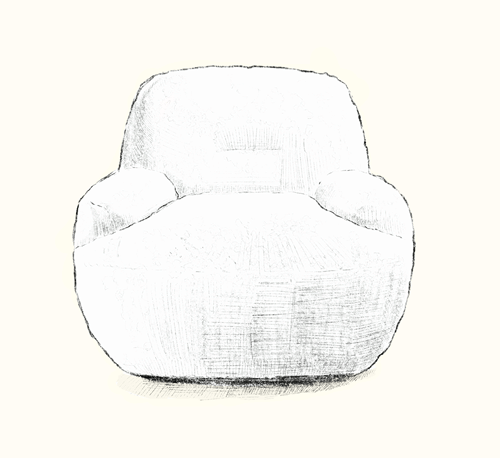Ivan Turgenev Lookbook | Brutalist and Neo-Rustic Furniture
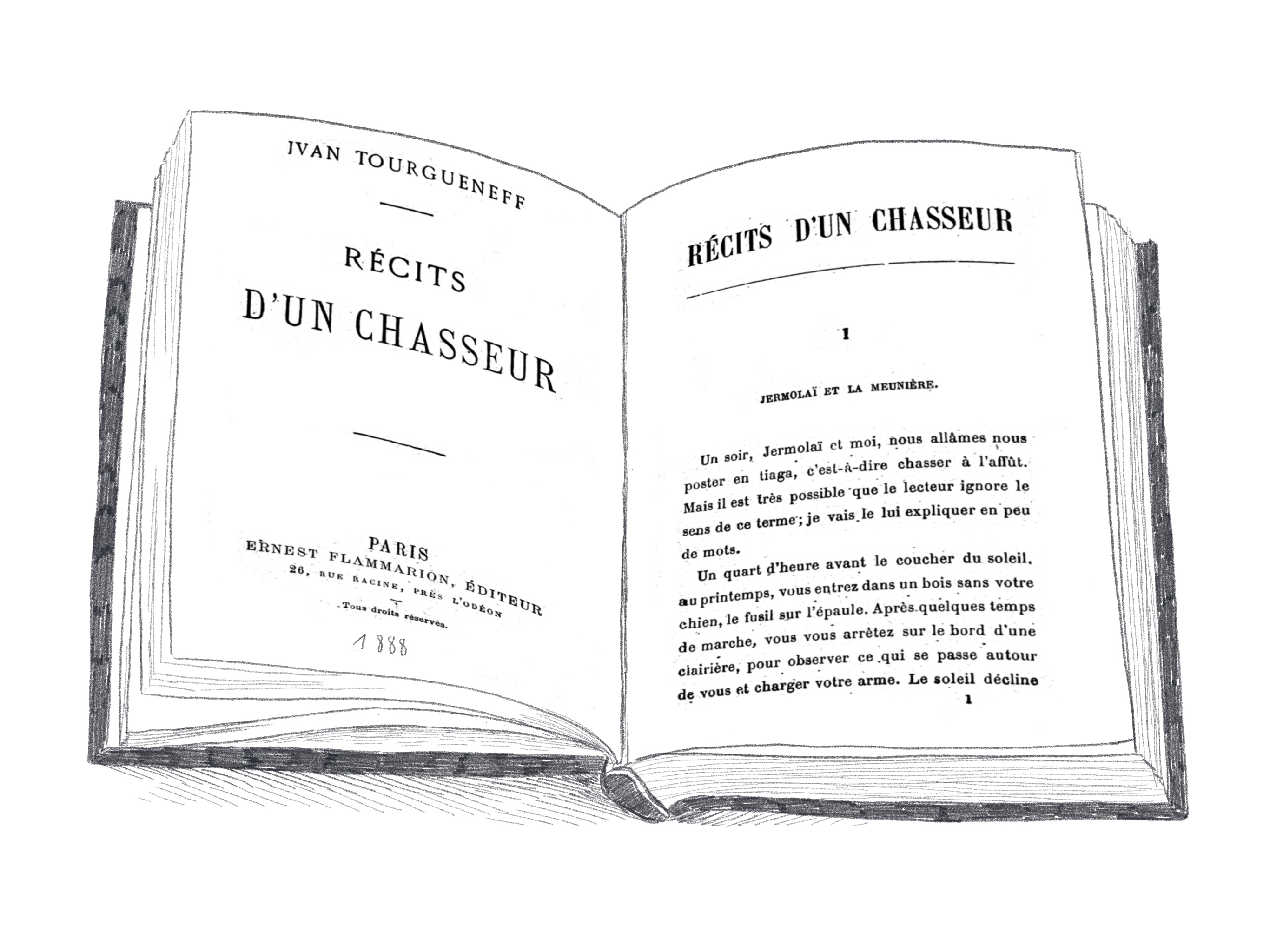
Carnet Ivan Turgenev: Discover the Fascinating Universe of a Giant of Russian Literature
Ivan Turgenev, one of the greatest names in 19th-century Russian literature, embodies the grandeur and subtlety of the Russian soul through his writings. A novelist, short story writer, poet, and playwright, he captured with rare finesse the social tensions, cultural upheavals, and contradictions of his time. His work not only made a deep impact on Eastern Europe but also profoundly influenced Western literature, inspiring many authors, philosophers, and thinkers. Through his characters and stories, he opened a window into the Russian soul, offering a reflection of the political and social upheavals of imperial Russia.

The Roots of a Master: The Childhood and Youth of Ivan Turgenev
Born on November 9, 1818, in Oryol, Russia, Ivan Sergeyevich Turgenev came from an aristocratic family of noble descent. His father, a cavalry colonel, was an austere, authoritarian, and unstable man, while his mother, with unrelenting severity, ruled the household with an iron hand. From a young age, Turgenev witnessed the tensions within his family, an experience that would significantly influence his writing. He was educated at home by private tutors before attending the University of Moscow, then St. Petersburg, where he began to form his own worldview. It was during this time that he developed a passion for literature, discovering the great Russian and European authors who would become part of his literary universe.
His education and early experiences in the Russian aristocratic society greatly influenced his perception of social relations and class struggles, recurring themes in his work. The Russia of his time, torn by deep social tensions, fed his reflections and critiques.
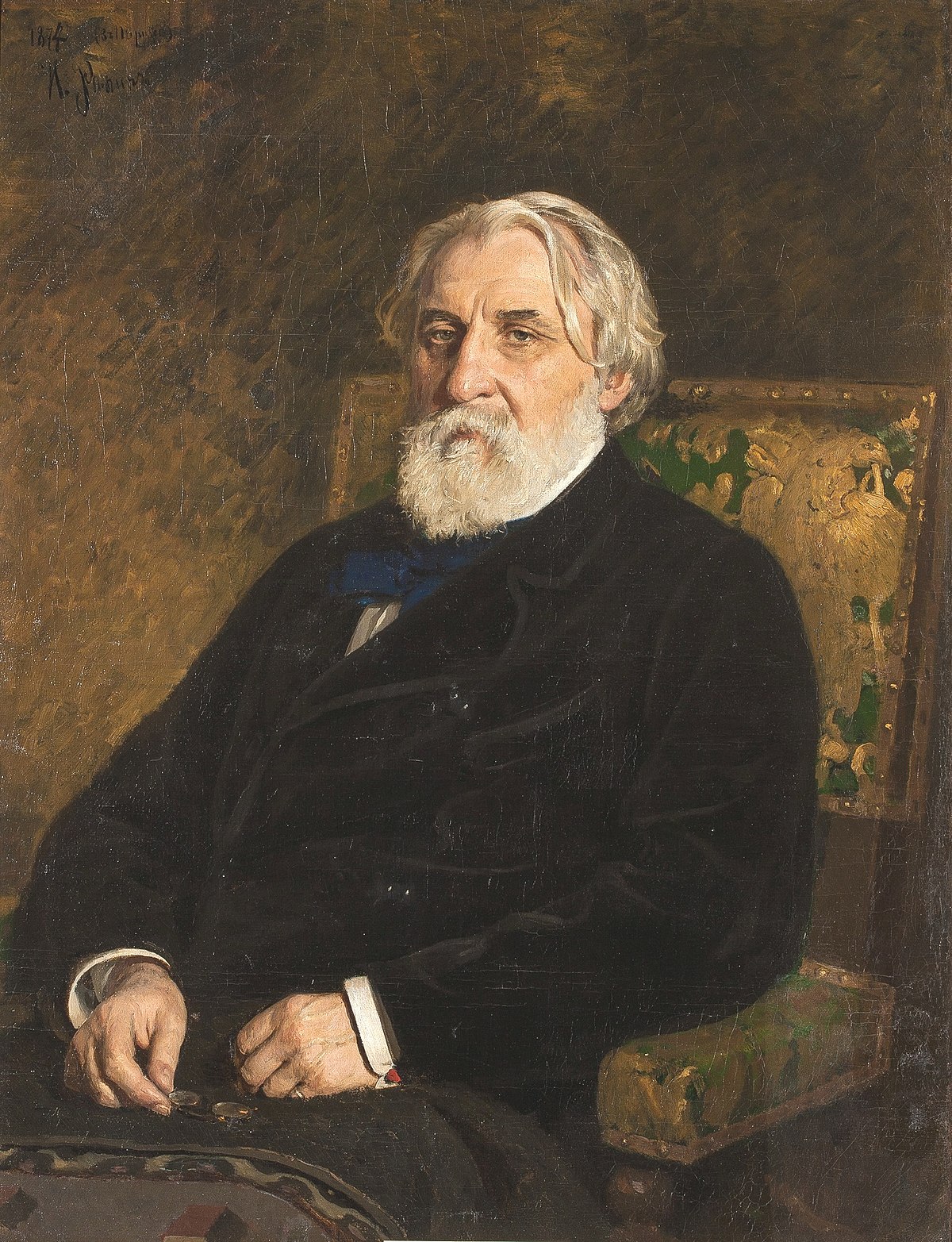
A Brilliant Literary Career: From Short Stories to Novels
Turgenev began his literary career as a poet, but it was through his short stories and novels that he gained recognition on the literary scene. His first major success, "A Nest of Gentlefolk" (1859), is a powerful work that portrays the Russian rural nobility and its contradictions. He highlights the contrasts between peasant life and the decay of the landed aristocracy, offering a poignant picture of a social class disconnected from the reality of the people. However, it was truly with "A Huntsman's Sketches" (1852) that Turgenev won a broad audience and the recognition of his peers. Through these stories, he captured the lives of peasants and hunters in rural Russia with rare sensitivity, offering a humanistic approach that departed from the ideological judgments of his time.
One of his major works, "Fathers and Sons" (1862), marks a turning point in his literary career. The novel depicts the famous generational conflict between Bazarov, a nihilist revolutionary, and his father, a more traditional man. These novel addresses key issues of the time, such as the emancipation of the serfs and the tensions between reformists and conservatives. Through this generational conflict, Turgenev paints a portrait of a society in transformation, caught between tradition and modernity.
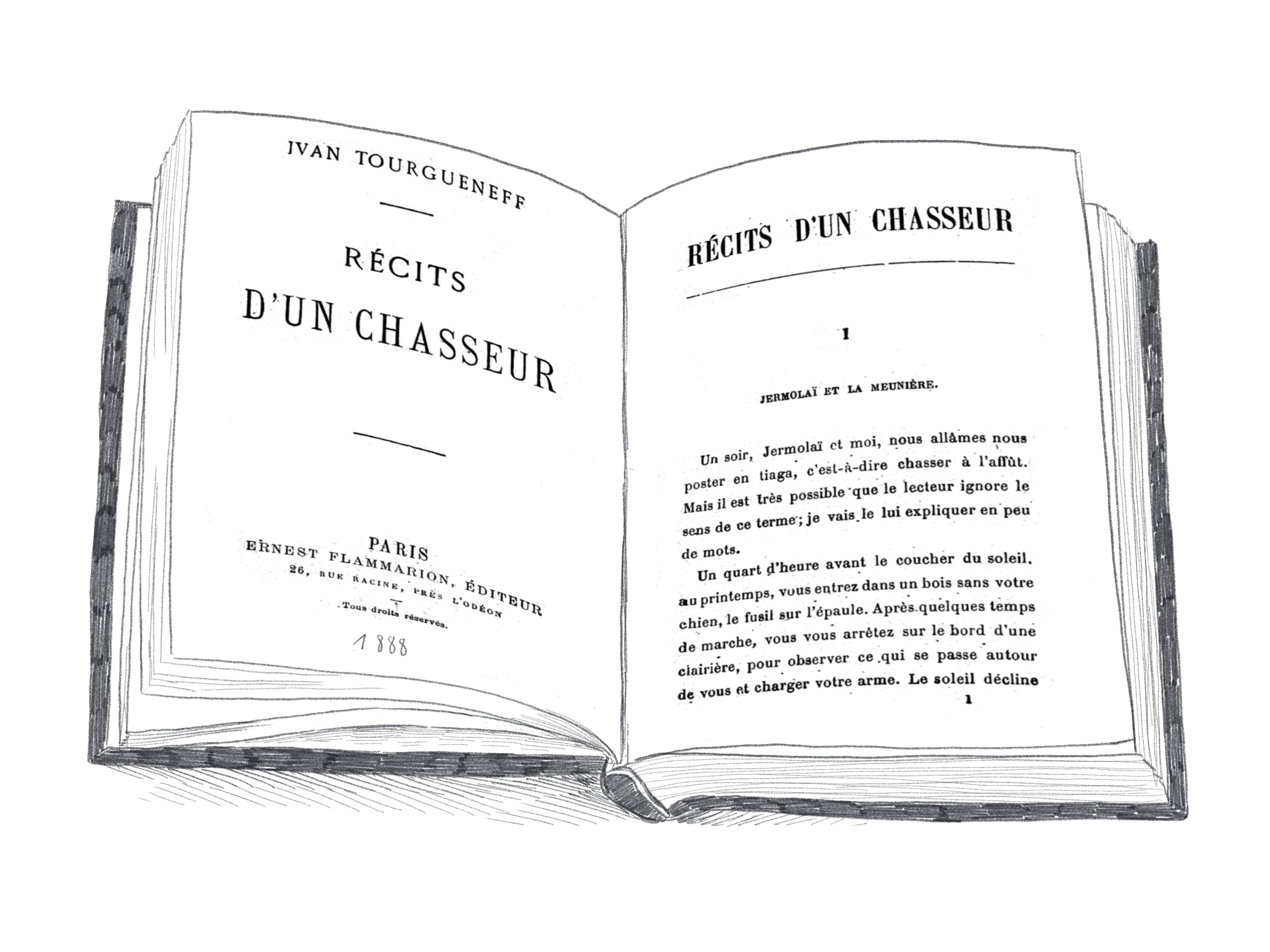
Exile and European Stays: Turgenev’s Soul Between East and West
Throughout his life, Ivan Turgenev lived under the shadow of his political stances. Due to his support for social reforms and his advocacy for the serfs, he was forced into exile in Europe. He spent much of his life in Germany, France, and England, where he sought refuge and continued his work. These European stays profoundly influenced his worldview, enriching his writing. Turgenev's influence extended beyond his Russian contemporaries.
Writers like Leo Tolstoy and Fyodor Dostoevsky, as well as European authors such as Gustave Flaubert and Henry James, were deeply influenced by his style and themes. Tolstoy and Dostoyevsky also inspire Sonia Linard in the writing of her new line of Zima rug and cushions. These travels allowed him to develop a broader perspective, making his writing more universal, transcending national boundaries, and leading to a broader reflection on the human condition.
His time abroad also provided Turgenev the opportunity to distance himself from the political tensions shaking imperial Russia, particularly the issue of serfdom abolition, a subject he approached with great lucidity in his writings. These experiences led him to critically assess his country, seeking profound reforms.
The Literary and Human Legacy of Ivan Turgenev
Turgenev continued to write until his death in 1883, leaving behind an unparalleled literary corpus that influenced the social and political thought of his time. His later works, such as "Virgin Soil" (1877), remained deeply rooted in the social and economic realities of Russia. This novel illustrates the rise of modern agriculture and the transformation of Russian society—themes that, although belonging to his time, still resonate today in contemporary debates on inequalities and social reforms. Turgenev's work remains a valuable testimony to the social and political changes of imperial Russia.
Today, Turgenev’s impact endures through his works, which continue to inspire numerous writers, readers, and intellectuals. His commitment to social justice, his elegant literary style, and his ability to explore the psychology of his characters secure his place among the greatest writers in the history of world literature.
A Unique Literary Style: The Poetry of the Russian Soul
Turgenev's literary style is known for its clarity, poetic simplicity, and emotional depth. Through rich portraits and subtle dialogues, he captures the essence of his characters while offering a reflection on Russian society of his time. Turgenev innovates by addressing social issues with great finesse, never sacrificing the human and psychological dimension of his characters. His writing is a delicate blend of realism and lyricism, where the beauty of Russian nature is juxtaposed with the social tensions of the era. This approach influenced many writers, and the modernization of Russian literature would not be what it is today without him.

The Influence of Turgenev: From Literary Masters to the Anja Collection
Turgenev's influence extends beyond his Russian contemporaries. His explorations of the human soul, society, and inner conflicts resonate in literary works that continue to fuel contemporary reflection.
Turgenev’s work has also inspired creators in other fields, such as design. For instance, the Anja collection by Norki is deeply influenced by Turgenev's aesthetic universe, where nature, elegance, and simplicity are omnipresent. The beauty of Russian landscapes and the romantic atmosphere of Turgenev's stories are reflected in the collection's universe.
Ivan Turgenev and the Anja Collection: A Deep and Personal Inspiration
Sonia Linard, CEO of Norki, has a deep admiration for the work of Ivan Turgenev, whose recurring themes have profoundly influenced her artistic choices. "A Huntsman's Sketches" in particular holds a central place in her journey, remaining a key work that continues to inspire and enrich her creative vision. This influence is subtly but profoundly reflected in the Anja collection by Norki, a true ode to her childhood.
The Essence of the Anja Collection: Between Childhood Memories and Contemporary Vision
The rugs, throws, cushions, benches, chairs, and screens of the Anja collection by Norki are not just a simple interpretation of Turgenev's beloved themes such as nature, elegance, and simplicity. They also serve as a personal tribute, a mirror of Sonia Linard's childhood memories and a reflection of her present life. "A Huntsman's Sketches" fits perfectly within this intimate narrative, a book that continues to resonate deeply in her life.
Through the pieces of the collection, alongside the architecture of dachas, the Slavic art, the embroidery of folk costumes, the cold and gentle nature, the winter chill, and the simple life of Eastern Europe, Turgenev’s universe is embodied in forms and textures: the raw beauty of the landscapes, the delicacy of human emotions, and the poetry of Turgenev’s characters intertwine with the creator’s personal memories and emotions.
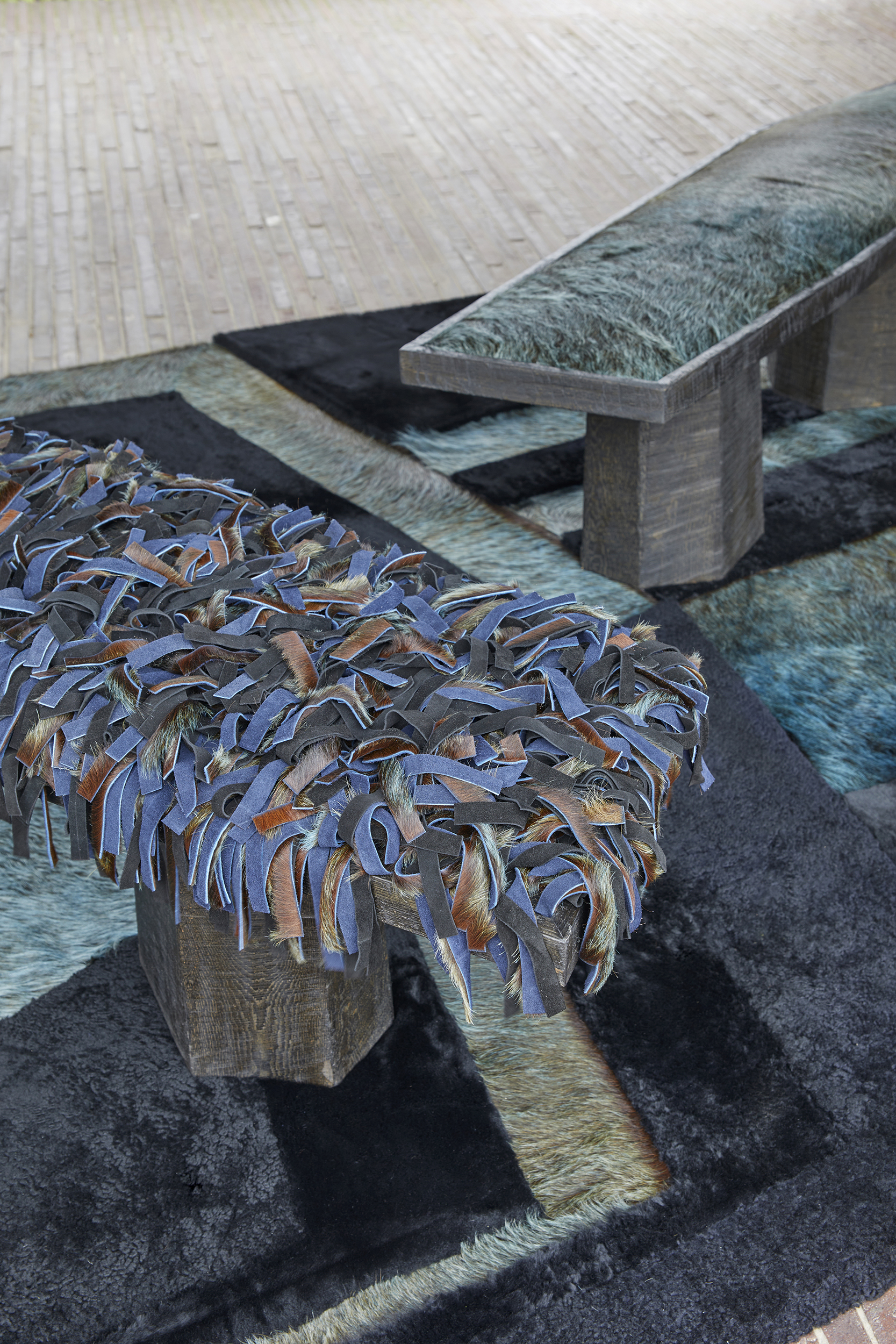

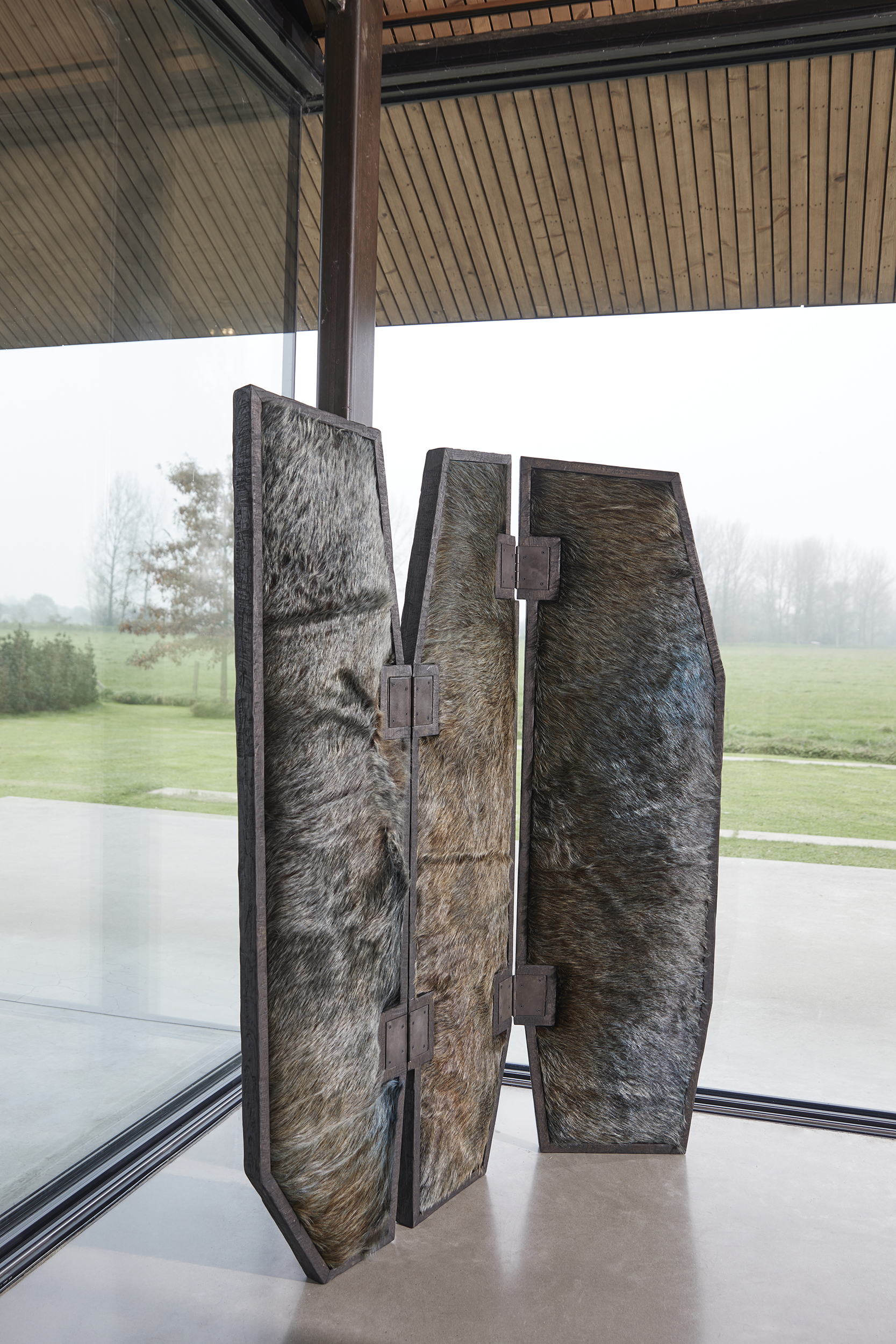
An Eternal Legacy: Why Read Turgenev Today
Ivan Turgenev, with his social engagement, humanism, and elegant writing, remains an essential figure in world literature. His works, still relevant today, offer deep reflections on social, political, and human issues that continue to stir our world. Reading and studying Turgenev's works means entering a universe where introspection, the beauty of nature, and the history of societies come together to create a universal and timeless message. Turgenev’s legacy, as seen through the Anja collection by Norki, is a testament to the lasting influence of this visionary writer, whose literary art remains a source of inspiration for creators today.

